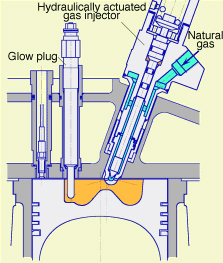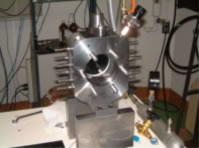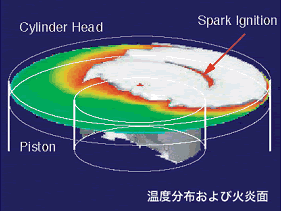Energy Conservation and Mitigation of Environmental Impact in Thermal Engine Systems
Internal combustion engines are widely used as power sources for cars, ships, construction machines, agricultural machines, power plants, cogeneration systems and so forth. In spite of their usefulness, they bring about the problems of massive consumption of fossil resource and considerable impact on environment. We focus on improvement in thermal efficiency, mitigation of pollutant emission and utilization of alternative fuels in engine systems. Current research subjects are improvement of diesel emissions by combustion control and after treatment, development of combustion techniques for utilizing alternative fuels such as natural gas and ethanol, fundamental studies on ignition and combustion of liquid sprays and gas jets and modeling of engine combustion.

Experimental studies for combustion improvement and utilization of alternative fuels
Combustion and after treatment techniques are investigated for low NOx and PM operation using a diesel engine equipped with an electrically controlled high-pressure injection and EGR systems. To realize clean and highly efficient combustion of natural gas, studies are carried out using a direct-injection test engine with a high-pressure gaseous-fuel injector. To provide the basis for understanding the combustion process in direct-injection engines, ignition and combustion of transient liquid sprays and gas jets are analyzed in a constant volume vessel under engine-like conditions.

Development of CFD model for engine combustion
Processes of heat release and nitric oxides (NOx) production in an engine are strongly affected by in-cylinder flow and turbulence characteristics. To clarify the details of these processes, 3-D combustion simulation with computational fluid dynamics (CFD) is developed. Using this simulation code, fluid motion, ignition, flame propagation and NOx production are predicted for various engine-operating conditions. The results provide better understandings of in-cylinder phenomena and useful information for optimizing combustion.




